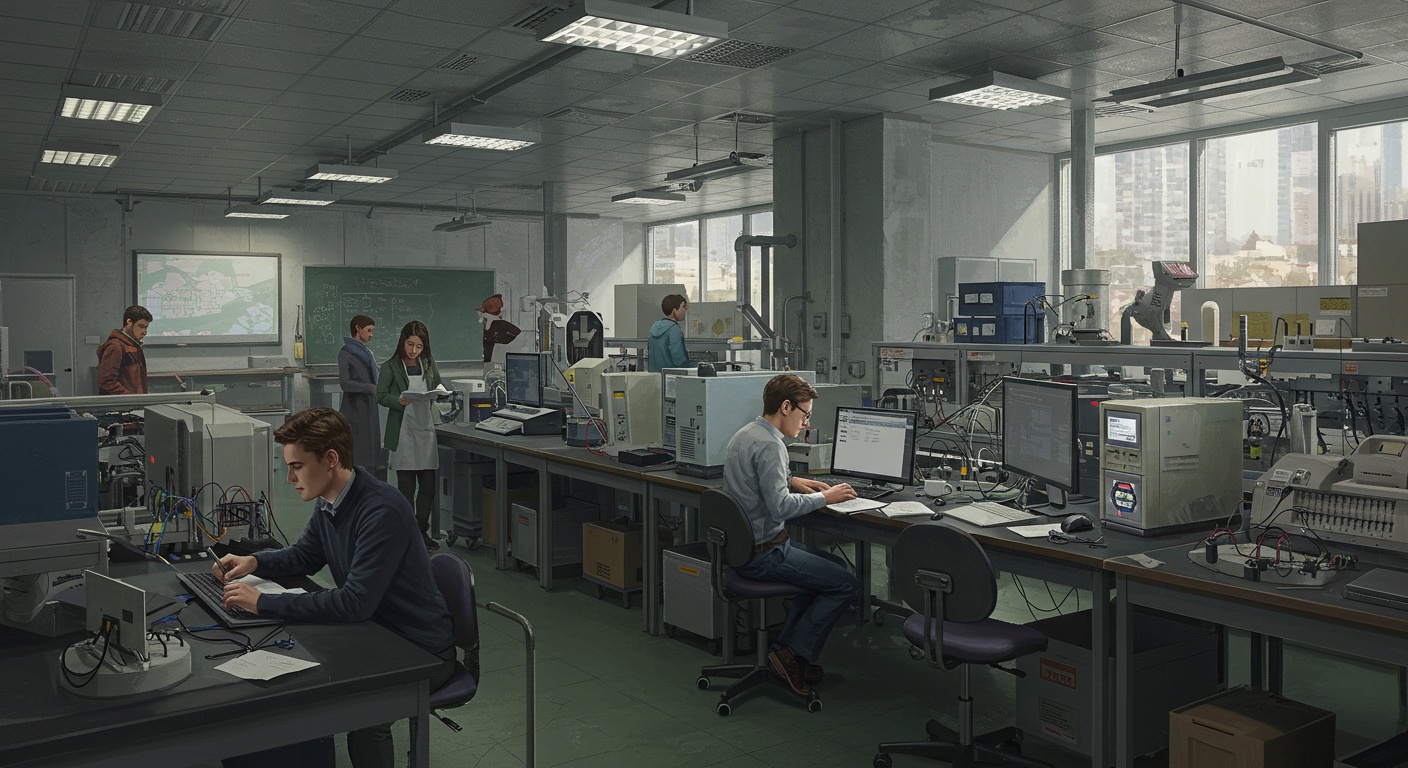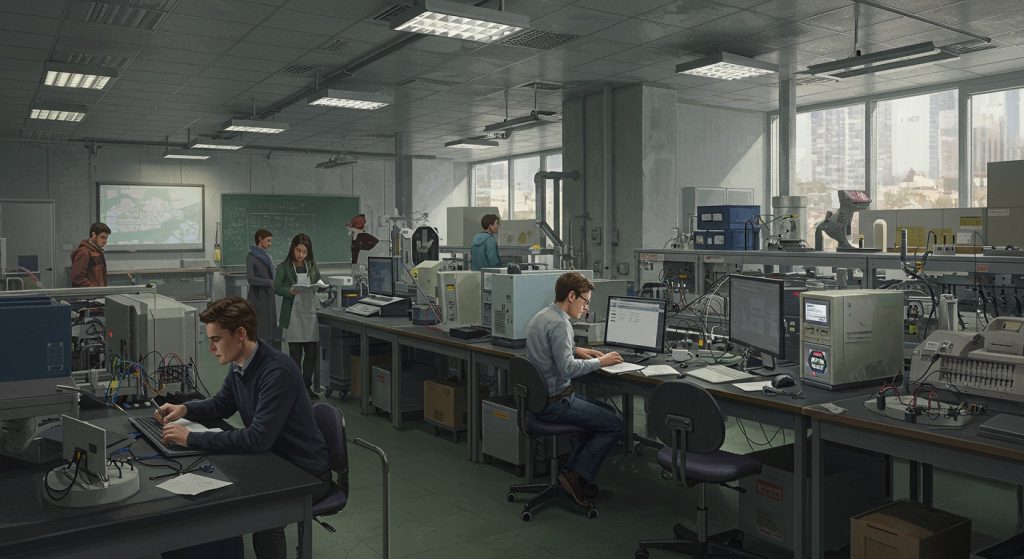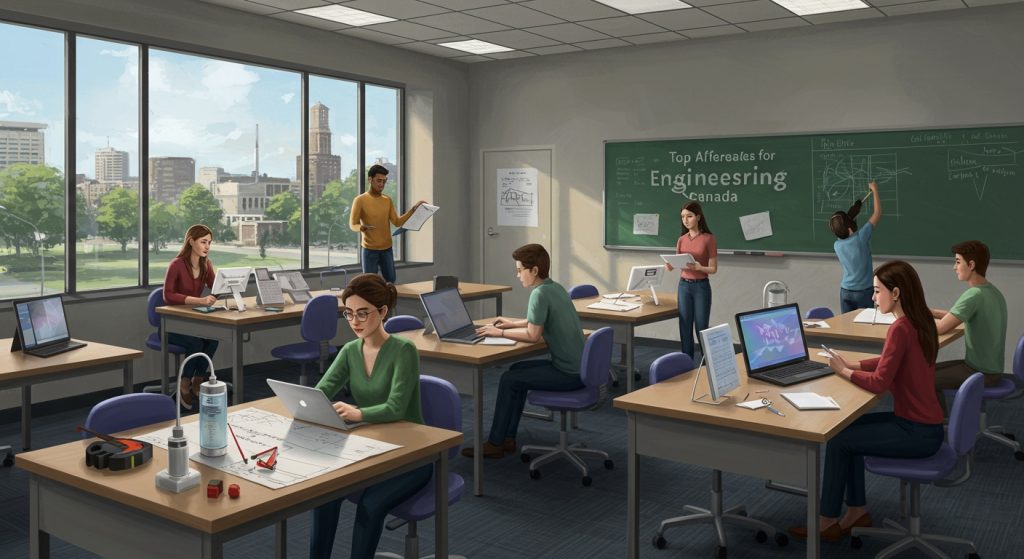Germany stands as a global powerhouse in engineering, fueled by a network of prestigious universities. As Industry 4. 0 demands increasingly specialized skillsets, choosing the right institution becomes paramount for aspiring engineers. This analysis delves into a comparative assessment of Germany’s leading engineering universities, evaluating them across crucial criteria. We examine research output, focusing on patents and publications in fields like automation and sustainable energy. Moreover, we assess curriculum design, faculty expertise. Industry partnerships, noting recent collaborations with companies like Siemens and Bosch. Ultimately, this exploration provides a framework to interpret the nuanced strengths of each institution, assisting students in making informed decisions aligned with their specific career aspirations.

RWTH Aachen University
RWTH Aachen University, or Rheinisch-Westfälische Technische Hochschule Aachen, is renowned for its engineering programs, particularly in mechanical, electrical. Computer engineering. Its strong ties to industry, especially in automotive and manufacturing, offer students invaluable research and practical experience. A key strength of RWTH Aachen is its focus on research-intensive education. This means students are actively involved in cutting-edge research projects from an early stage, fostering innovation and problem-solving skills. The university’s extensive network of partner companies, including Siemens, Bosch. Ford, provides numerous internship and job opportunities for graduates.
Key Technologies and Specializations:
- Mechanical Engineering: Focus on production technology, automotive engineering. Mechatronics.
- Electrical Engineering and data Technology: Specialization in power engineering, microelectronics. Communication technology.
- Computer Science: Research areas include artificial intelligence, robotics. Software engineering.
Technical University of Munich (TUM)
TUM is another leading engineering university in Germany, consistently ranked among the top universities worldwide. It distinguishes itself through its entrepreneurial ecosystem and its focus on innovation. TUM encourages students and researchers to develop and commercialize their ideas, providing support through its entrepreneurship center and various funding programs. The university’s strong collaboration with research institutions like the Max Planck Institutes and Helmholtz Centers further enhances its research capabilities.
Key Technologies and Specializations:
- Mechanical Engineering: Emphasizes automation, energy technology. Lightweight construction.
- Electrical and Computer Engineering: Strong programs in embedded systems, signal processing. Robotics.
- Informatics: Focus on data science, cybersecurity. Computer graphics.
- Aerospace Engineering: TUM has a dedicated aerospace engineering department with state-of-the-art facilities for research and development in aviation and space technology.
Karlsruhe Institute of Technology (KIT)
KIT, or Karlsruher Institut für Technologie, is a unique institution that combines the strengths of a university and a national research center. This dual nature allows KIT to conduct both fundamental and applied research across a wide range of engineering disciplines. KIT has a strong emphasis on energy research, including renewable energy sources, energy storage. Energy efficiency. The university also plays a leading role in developing sustainable technologies and solutions for environmental challenges.
Key Technologies and Specializations:
- Mechanical Engineering: Focus on energy technology, production engineering. Mechatronics.
- Electrical Engineering and data Technology: Specialization in micro- and nanoelectronics, communication technology. Power engineering.
- Computer Science: Research areas include distributed systems, IT security. Human-computer interaction.
- Civil Engineering, Geo- and Environmental Sciences: KIT offers comprehensive programs in these fields, addressing challenges related to infrastructure, environment. Sustainability. Affordable Engineering Degrees: High ROI Colleges
Technical University of Berlin (TU Berlin)
TU Berlin stands out for its international orientation and its location in the heart of Berlin, a vibrant and innovative city. The university attracts students and researchers from all over the world, creating a diverse and multicultural learning environment. TU Berlin has a strong focus on sustainable development and urban technologies, addressing challenges related to urbanization, climate change. Resource management. The university’s location in Berlin provides students with access to a wide range of cultural and social activities.
Key Technologies and Specializations:
- Mechanical Engineering: Focus on production technology, energy systems. Transportation.
- Electrical Engineering and Computer Science: Specialization in automation, microelectronics. Communication technology.
- Computer Science: Research areas include artificial intelligence, machine learning. Software engineering.
- Architecture and Urban Planning: TU Berlin offers renowned programs in architecture and urban planning, focusing on sustainable and innovative solutions for urban development.
University of Stuttgart
The University of Stuttgart is known for its strong focus on automotive engineering and its close collaboration with the automotive industry. The university is home to numerous research institutes and centers dedicated to automotive research, including the FKFS (Research Institute of Automotive Engineering and Vehicle Engines Stuttgart). The University of Stuttgart has a long tradition of innovation in automotive technology, contributing to advancements in areas such as vehicle safety, fuel efficiency. Autonomous driving.
Key Technologies and Specializations:
- Mechanical Engineering: Strong focus on automotive engineering, production technology. Mechatronics.
- Electrical Engineering and data Technology: Specialization in power electronics, embedded systems. Communication technology.
- Computer Science: Research areas include robotics, artificial intelligence. Software engineering.
- Aerospace Engineering: The University of Stuttgart has a dedicated aerospace engineering department with a focus on aircraft design, aerodynamics. Space technology.
Comparative Analysis: Key Differences and Strengths
While all the aforementioned universities offer excellent engineering programs, they each have their unique strengths and areas of specialization. The following table summarizes the key differences between these institutions:
| University | Key Strengths | Areas of Specialization | Industry Connections |
|---|---|---|---|
| RWTH Aachen | Research-intensive education, strong industry ties | Mechanical Engineering, Electrical Engineering, Computer Science | Automotive, Manufacturing |
| TUM | Entrepreneurial ecosystem, innovation focus | Mechanical Engineering, Electrical and Computer Engineering, Informatics, Aerospace Engineering | High-tech, Automotive, Aerospace |
| KIT | Combination of university and national research center, focus on energy research | Mechanical Engineering, Electrical Engineering and data Technology, Computer Science, Civil Engineering | Energy, Environment |
| TU Berlin | International orientation, location in Berlin, focus on sustainable development | Mechanical Engineering, Electrical Engineering and Computer Science, Computer Science, Architecture and Urban Planning | Urban Technologies, Sustainability |
| University of Stuttgart | Focus on automotive engineering, close collaboration with the automotive industry | Mechanical Engineering, Electrical Engineering and insights Technology, Computer Science, Aerospace Engineering | Automotive, Aerospace |
Real-World Applications and Use Cases
The research and innovation conducted at these universities have a significant impact on various industries and sectors. Here are a few examples of real-world applications and use cases:
- Autonomous Driving: RWTH Aachen, TUM. The University of Stuttgart are actively involved in developing autonomous driving technologies, including sensor systems, control algorithms. Vehicle communication systems.
- Renewable Energy: KIT is a leading research institution in the field of renewable energy, developing new technologies for solar energy, wind energy. Energy storage.
- Smart Cities: TU Berlin is working on developing smart city solutions, including intelligent transportation systems, energy-efficient buildings. Sustainable urban planning.
- Advanced Manufacturing: RWTH Aachen and the University of Stuttgart are contributing to the development of advanced manufacturing technologies, such as additive manufacturing (3D printing) and robotics.
- Aerospace Engineering: TUM and the University of Stuttgart conduct cutting-edge research in aerospace engineering, including aircraft design, aerodynamics. Space technology.
Conclusion
Choosing the right German engineering university is a pivotal decision, heavily influenced by factors beyond mere rankings. As we’ve explored, each institution offers a unique blend of academic rigor, research opportunities. Industry connections. For example, RWTH Aachen excels in practical application, while TU Munich leans towards theoretical innovation. The key to success lies in aligning your personal aspirations with the university’s strengths. Don’t just chase the highest-ranked program; delve into the specific research being conducted, the professors leading the charge. The available industry partnerships. Remember, a less prestigious university with a strong focus on your niche area can be a far better launchpad. Looking ahead, Germany’s engineering landscape is rapidly evolving, with increased emphasis on sustainable technologies and artificial intelligence. Prioritize institutions that actively integrate these emerging fields into their curriculum and research initiatives. By proactively seeking out these opportunities, you will not only gain a competitive edge but also contribute to shaping the future of engineering.
FAQs
So, what are considered the top engineering universities in Germany, anyway? Give me the quick rundown.
Alright, if we’re talking top dogs in German engineering, you’ll often hear these names: RWTH Aachen University, Technical University of Munich (TUM), Karlsruhe Institute of Technology (KIT), Technical University of Berlin (TU Berlin). The University of Stuttgart. They’re consistently ranked highly for their engineering programs.
What’s the biggest difference, in a nutshell, between, say, RWTH Aachen and TU Munich? Are they known for different specialities?
Good question! While both are excellent, RWTH Aachen is HUGE. Known for practical application and industry connections. They’re a powerhouse across many engineering disciplines. TUM, on the other hand, has a stronger entrepreneurial focus and a reputation for innovation and research, particularly in areas like AI and aerospace. It really depends on what kind of engineering you’re into and what you want to do after graduation.
Okay, that makes sense. But how much does location really matter when picking an engineering uni in Germany? I mean, is one city just better for engineering jobs?
Location does play a role, definitely. Munich has a booming tech industry (Siemens, BMW, etc.) , so TUM students often have easier access to internships and jobs there. Aachen is in a more industrial region, with lots of manufacturing companies. Berlin is… Well, it’s Berlin! Lots of startups and a cool, vibrant atmosphere. Stuttgart, home to Mercedes-Benz and Porsche, is obviously a hub for automotive engineering. Think about what kind of jobs you’re after.
What about KIT in Karlsruhe? I don’t hear as much about them. Are they worth considering?
Absolutely! Don’t underestimate KIT. They’re a research-focused powerhouse and have strong programs in mechanical engineering, electrical engineering. Computer science. Plus, they’re actually one of the largest research institutions in Germany, so if you’re keen on getting involved in cutting-edge research, KIT is a fantastic choice.
And TU Berlin? What’s their claim to fame?
TU Berlin is known for its strong international focus and its diverse student body. It’s located in the heart of Berlin, giving students access to a vibrant cultural scene and a growing tech startup ecosystem. They have excellent programs in areas like computer science, mechanical engineering. Civil engineering.
Is there a big difference in the teaching style between these universities? Like, are some more hands-on than others?
There can be subtle differences. RWTH Aachen tends to emphasize a more practical, hands-on approach with lots of lab work and projects integrated into the curriculum. TUM has a reputation for a more theoretical foundation. Still with plenty of practical application. Honestly, it’s best to research the specific department you’re interested in, as the teaching style can vary even within the same university.
Let’s say I’m not a German speaker. Are there many engineering programs in English at these universities?
Yes, thankfully! Most of these universities offer a significant number of Master’s programs taught entirely in English. For Bachelor’s, it’s less common. Definitely still possible, especially for international programs. Always double-check the language requirements for the specific program you’re interested in.



